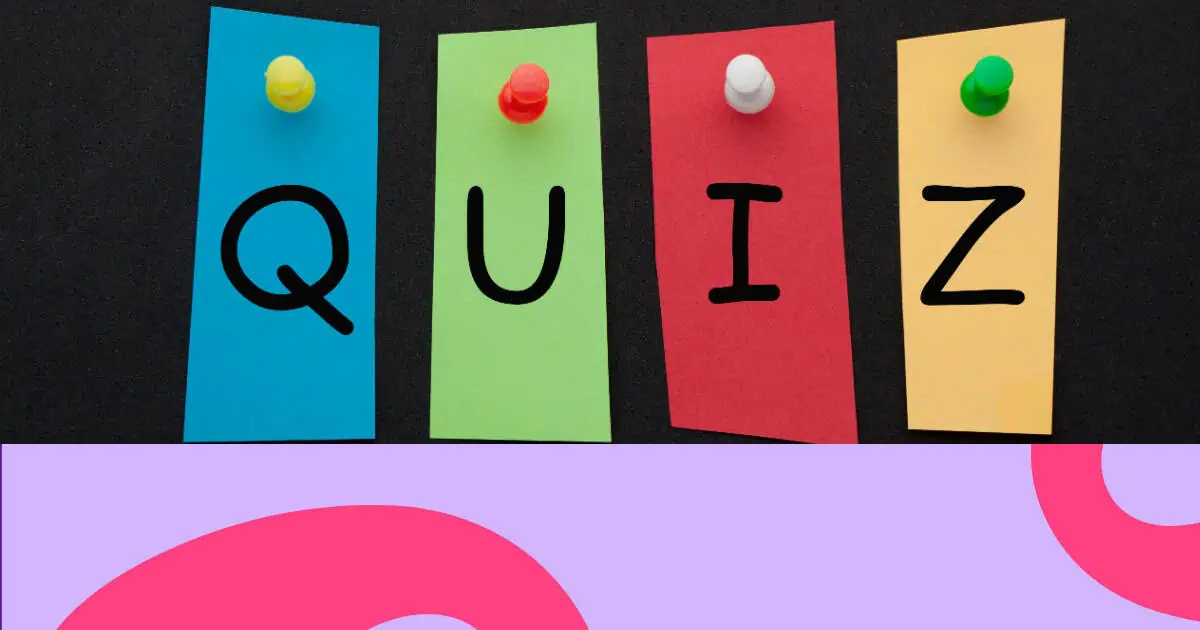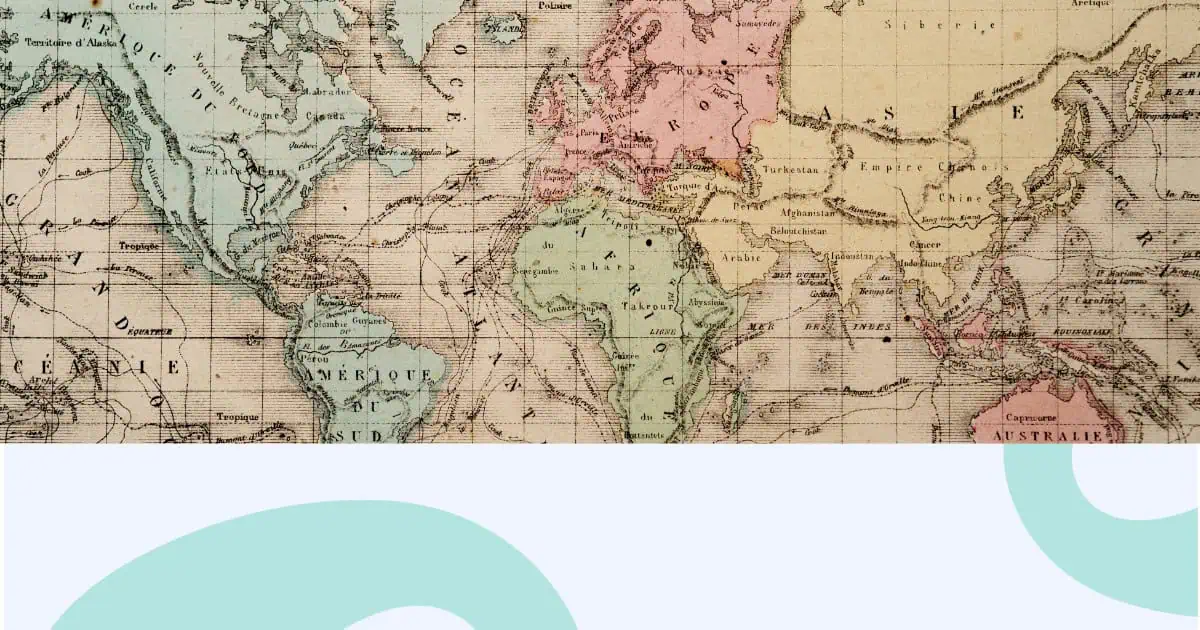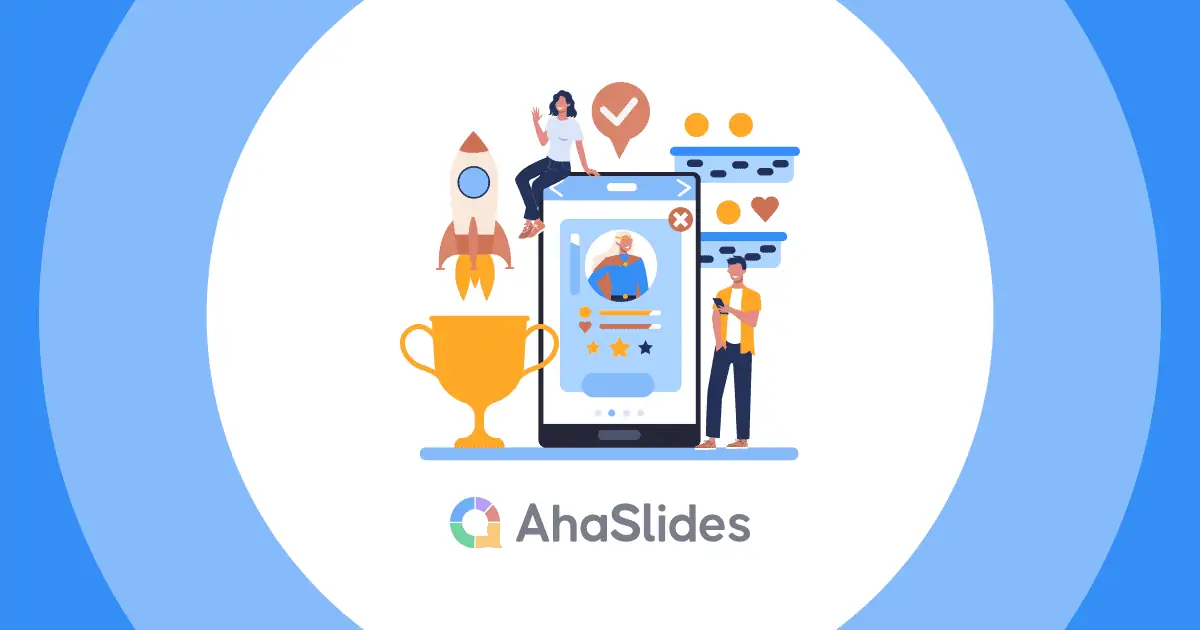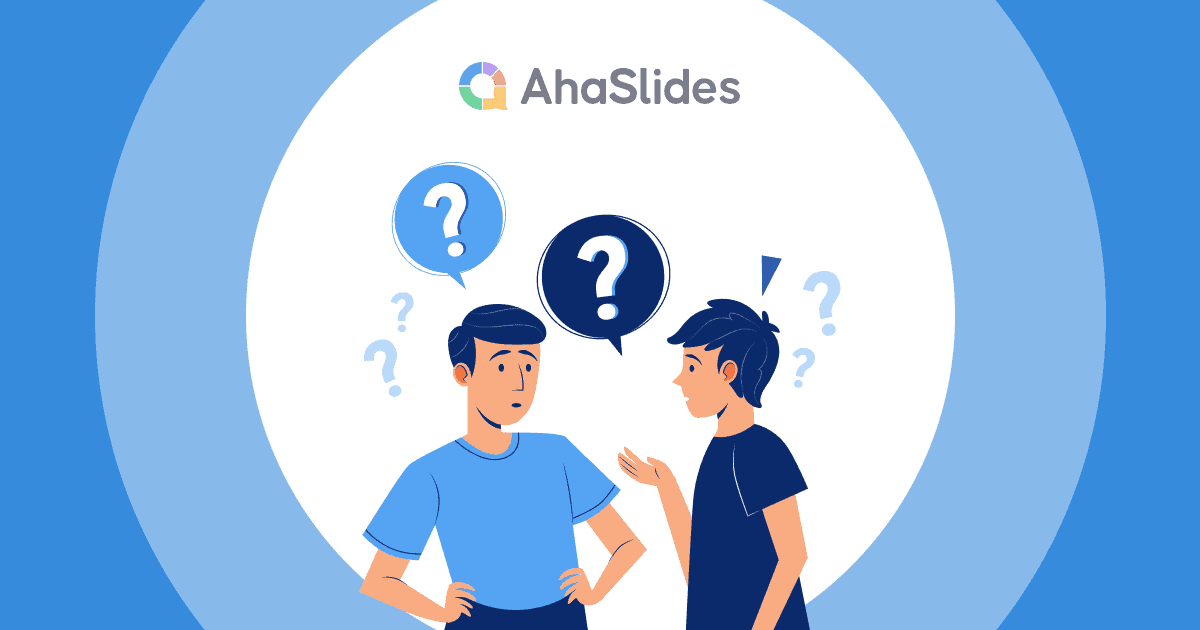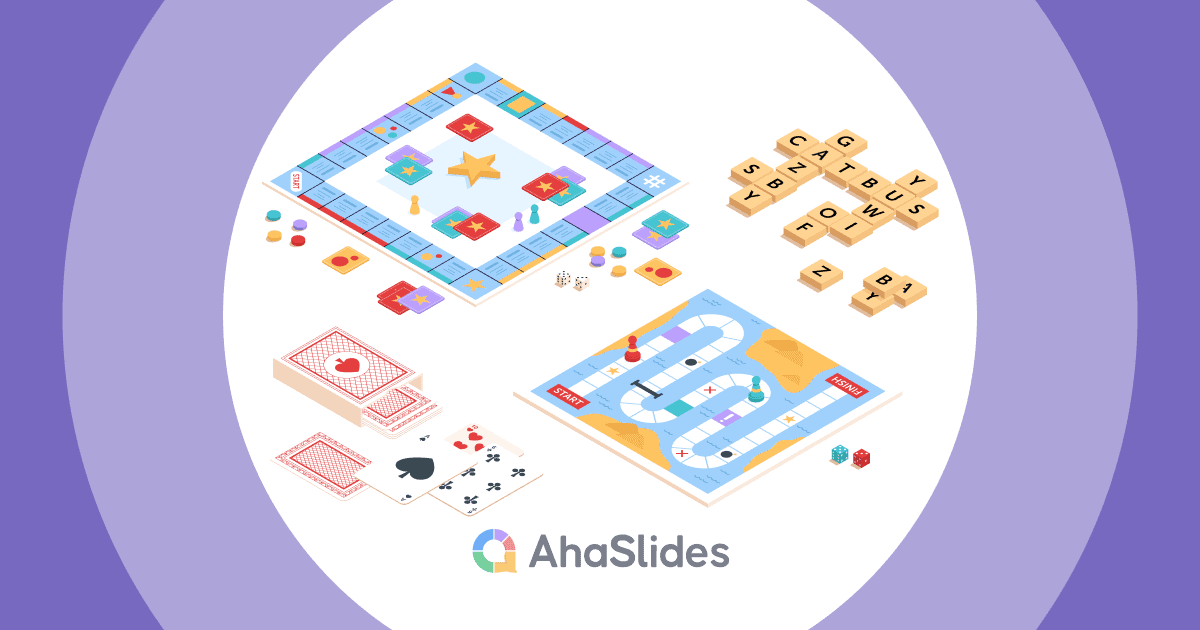Your audience craves variety, and frankly, so do you. Those tried-and-true multiple-choice questions served you well, but now they're about as exciting as watching paint dry. The good news? There's a whole world of creative question formats just waiting to breathe life back into your quiz nights.
These types of quizzes will transform your tired quiz rounds into engaging brain workouts that participants actually remember days later. Ready to give your quizzing game the upgrade it deserves? Here's your arsenal of fresh options!
Types of Quizzes
1. Open-ended
First up, let's get the most common option out of the way. Open-ended questions are just your standard quiz questions that allow your participants to answer pretty much anything they’d like – although correct (or funny) answers are usually preferred.
These questions are great for comprehension checks or if you’re testing specific knowledge. When combined with other options in this list, it will keep your quiz players challenged and engaged.
In AhaSlides' open-ended quiz slide, you can write down your question and let participants answer through their mobile phones/personal devices. When 10 responses are submitted, you can use the group function to group similar themes/ideas together.
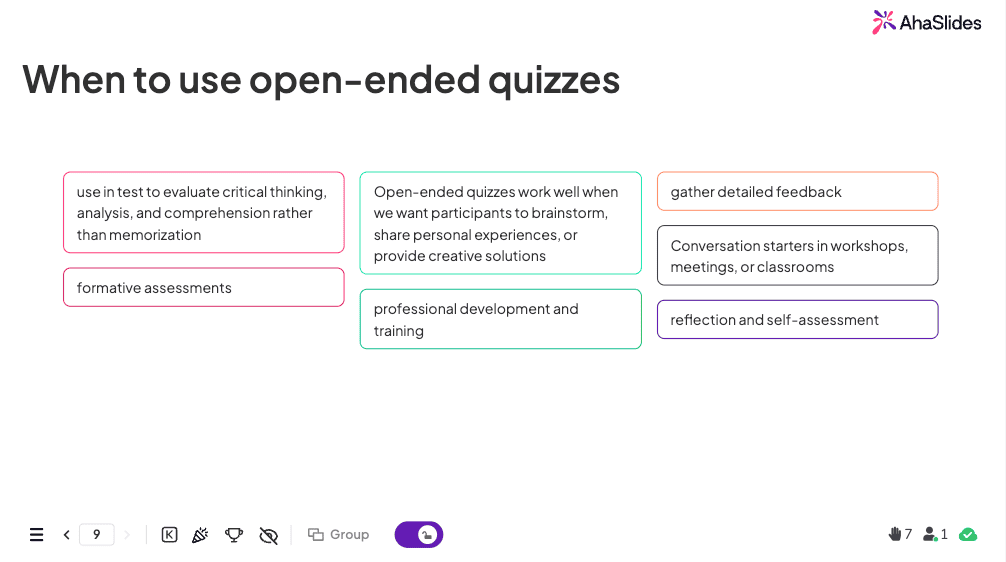
2. Multiple-choice
A multiple-choice quiz does exactly what it says on the tin, it gives your participants a number of choices and they pick the correct answer from the options.
What's great about a multiple-choice quiz is that, unlike open-ended ones, it keeps wild guesses in check, makes scoring straightforward, gives people a decent shot even when they're not totally confident, and stops large groups from shouting out whatever pops into their heads
It’s always a good idea to add a red herring or two if you want to host an entire quiz this way to try and throw your players off. Otherwise, the format can get old quite quickly.
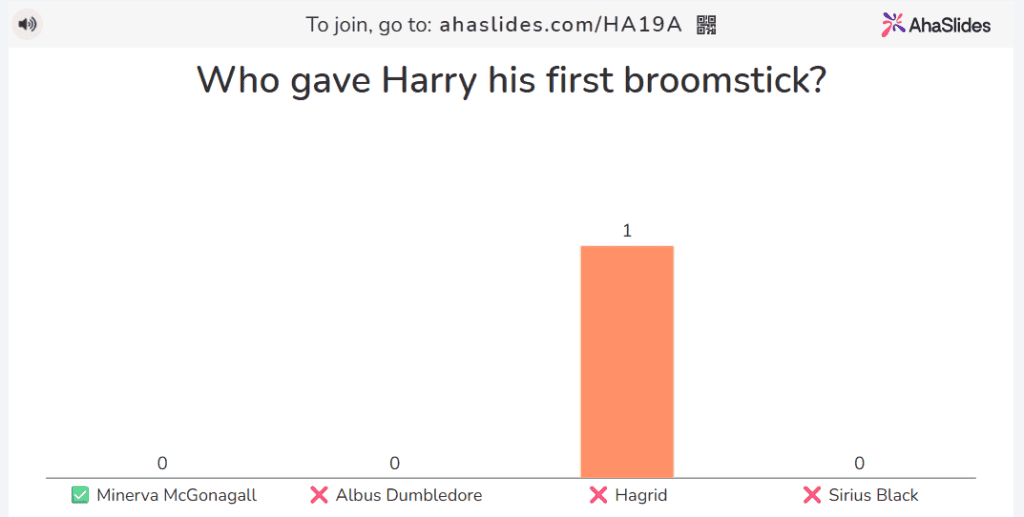
Multiple-choice questions work well if you want to run through a quiz quite quickly. For use in lessons or presentations, this might be a really good solution because it doesn’t require too much input from the participants and answers can be revealed quickly, keeping people engaged and focused.
3. Categorise
Categorise quizzes are popular where you want the participants to group items into their respective categories. It's an engaging way to test organisational thinking and conceptual understanding rather than just factual recall. This type of quiz is particularly useful for:
- Language learning (grouping words by parts of speech - nouns, verbs, adjectives)
- Teaching classifications (sorting animals into mammals, reptiles, birds, etc.)
- Organising concepts (grouping marketing strategies into digital vs. traditional)
- Testing understanding of frameworks (categorising symptoms by medical condition)
- Business training (sorting expenses into operational vs. capital costs)
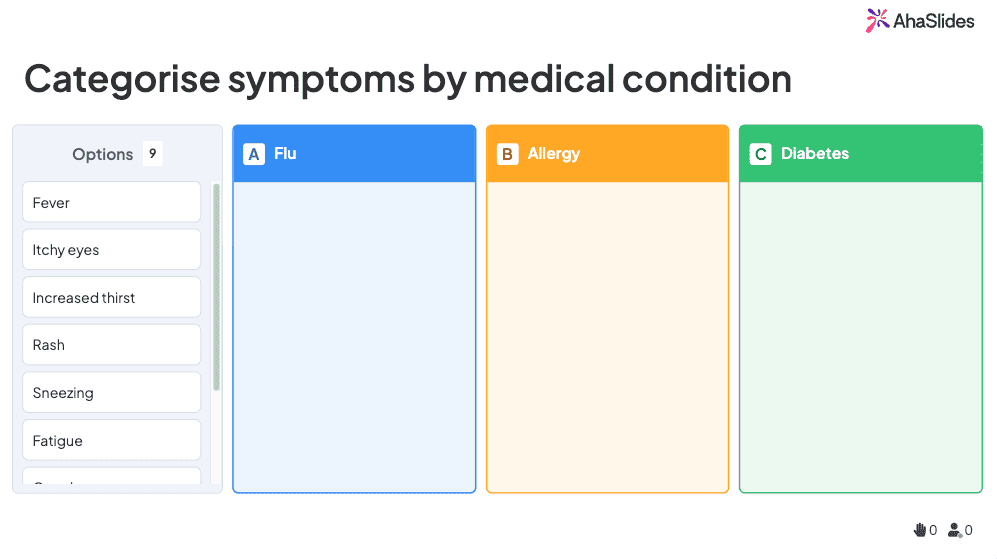
4. Match the Pairs
Challenge your teams by providing them with a list of prompts, a list of answers and asking them to pair them up.
A matching pairs game is great for getting through a lot of simple information at once. It's best suited for the classroom, where students can pair vocabulary in language lessons, terminology in science lessons and maths formulas to their answers.
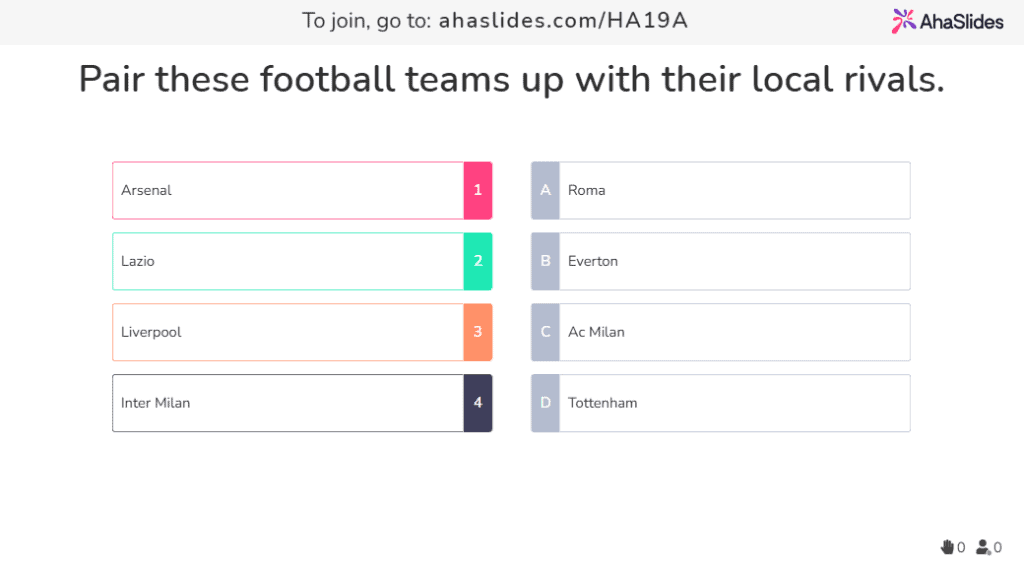
5. Fill-in-the-blank
This one will be one of the more familiar types of quiz questions for experienced quiz masters, and it can also be one of the funnier options.
Give your players a question with one (or more) words missing and ask them to fill in the gaps. It's best to use this one to finish the lyrics or a movie quote.
In AhaSlides, a fill-in-the-blank quiz is called 'Short answer'. You type your question, type the correct answers to display and other accepted answers if there are more than one variants of correct answers.
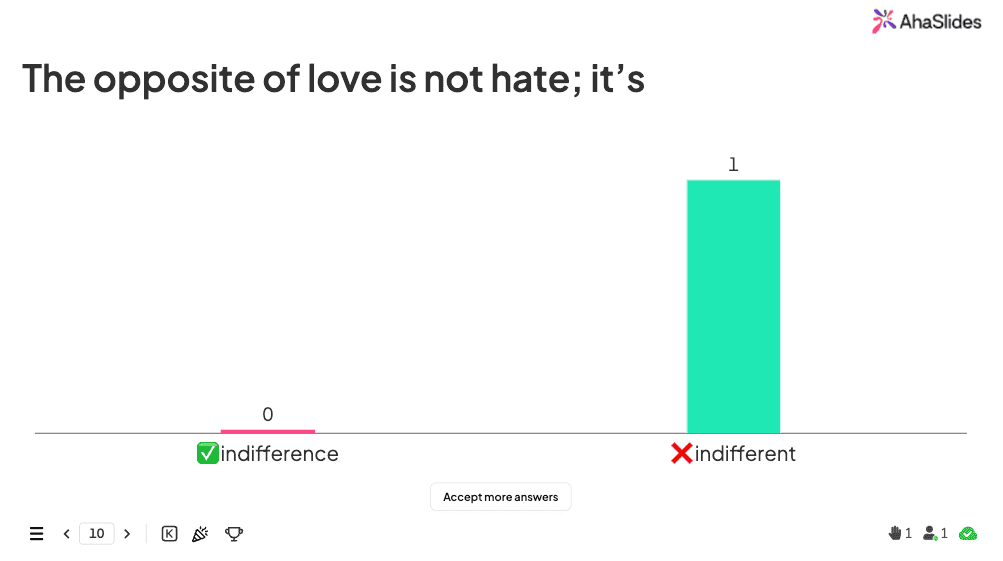
6. Audio Quiz
Audio questions are a great way to jazz up a quiz with a music round (pretty obvious, right? 😅). The standard way to do this is to play a small sample of a song and ask your players to name the artist or song.
Still, there's a lot more you could be doing with a sound quiz. Why not give some of these a try?
- Audio impressions - Gather some audio impressions (or make some yourself!) and ask who's being impersonated. Bonus points for getting the impersonator as well!
- Language lessons - Ask a question, play a sample in the target language and let your players choose the right answer.
- What's that sound? - Like what's that song? but with sounds to identify instead of tunes. There's so much room for customisation in this one!
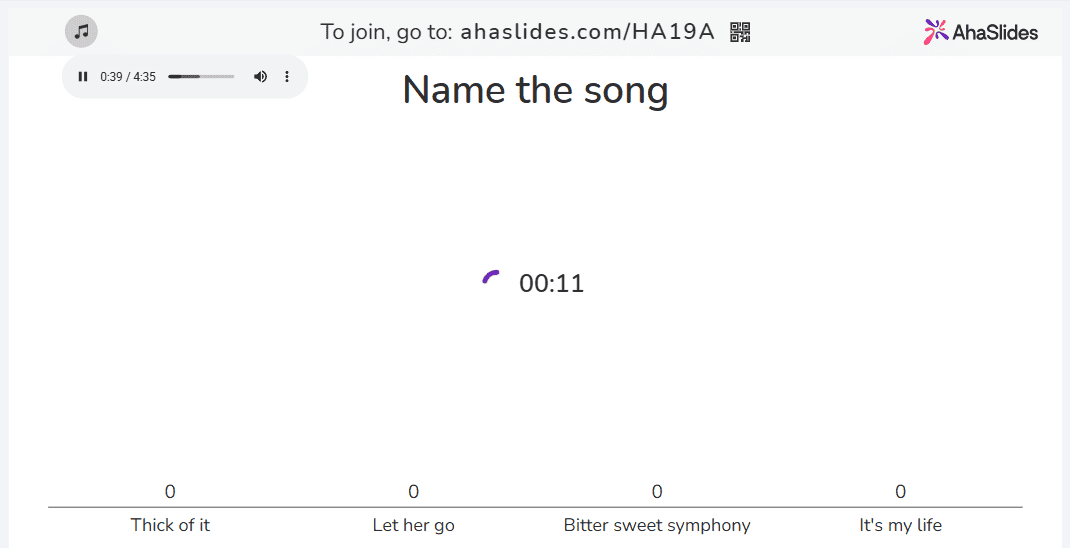
6. Odd One Out
Want to mess with your audience's heads? Try an 'odd one out' question - it's exactly what it sounds like. Give your players 4-5 options and ask them to spot which one doesn't belong.
The trick is picking items that could genuinely confuse people. Maybe throw in some red herrings or make the connection super subtle so teams are sitting there going 'Wait, is this a trick question or am I missing something obvious?'
t works great when you want to slow down the know-it-alls and get everyone really thinking. Just don't make it so obscure that people give up - you want that satisfying 'aha!' moment when they finally get it.
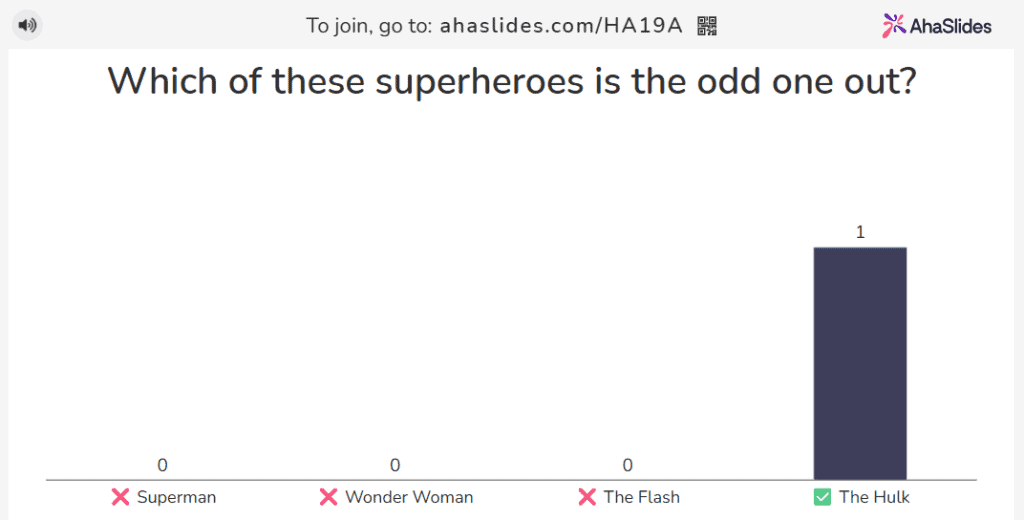
p/s: The Hulk belongs to the MCU while the other heroes belong to the DCEU.
7. Correct Order
Here's a classic that always gets people scratching their heads - the sequence question. You give your participants a jumbled list of events, dates, or steps and ask them to put everything in the right order. It could be anything: when different movies came out, the order of historical events, steps in a recipe, or even the timeline of a celebrity's career.
The beauty of this quiz type is that it tests both knowledge and logic - even if someone doesn't know all the answers, they can often figure out some of the sequence through elimination.
It works especially well when you want to slow down the pace a bit and get teams really discussing and debating with each other. Just make sure your events aren't too obscure, or you'll have everyone staring blankly at their screens.
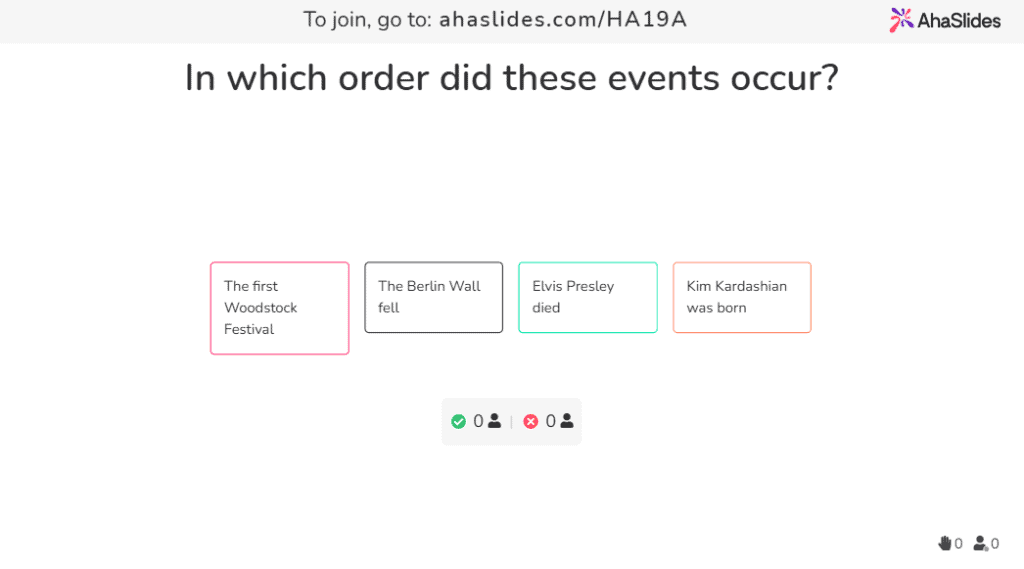
Naturally, these are great for history rounds, but they also work beautifully in language rounds where you might need to arrange a sentence in another language, or even as a science round where you order the events of a process 👇
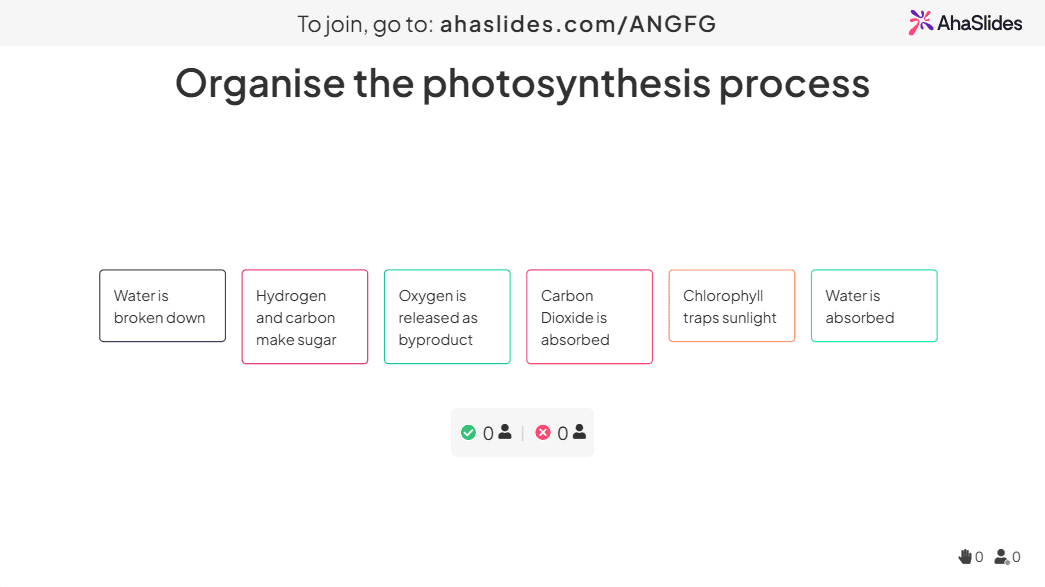
9. True or False
True or false quizzes are an absolute basic. You make a statement, and your players just have to decide if it's right or wrong. Simple, right? Well, that's exactly why they're so effective.
This is one of the best types of quizzes because everyone can participate regardless of their knowledge level, and they're perfect for breaking the ice or getting a quick energy boost in your quiz. The real art is crafting statements that aren't too obvious but aren't impossibly tricky either.
You want people to pause and think, maybe second-guess themselves a bit. Try mixing in some surprising facts with common misconceptions, or throw in statements that sound fake but are actually true. These work great as warm-up questions, tie-breakers, or when you need to speed up the pace and get everyone engaged again.
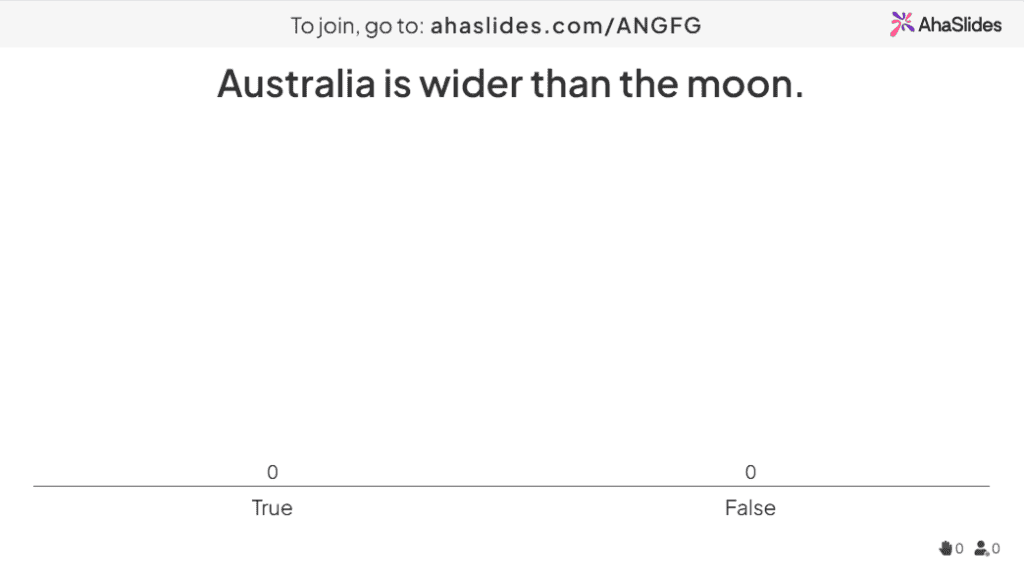
Be sure with this one that you're not just serving up a bunch of interesting facts masquerading as true or false questions. If players cotton on to the fact that the correct answer is the most surprising one, it's easy for them to guess.
Feeling confident yet? Try AhaSlides to create quizzes in seconds.
